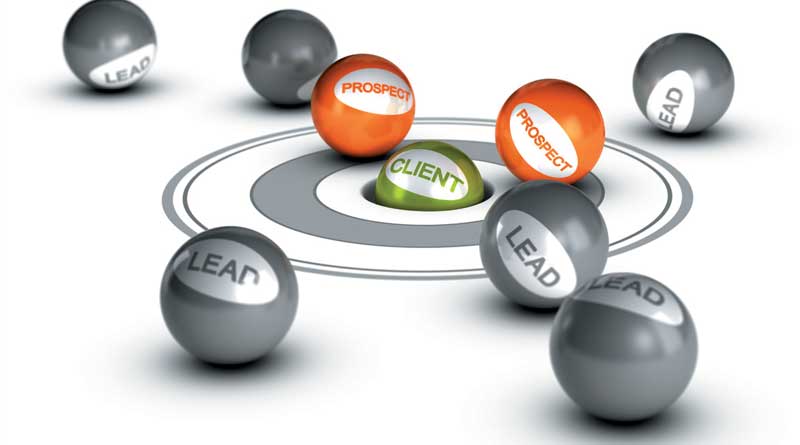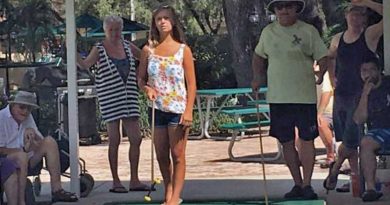Online Lead Generation: A Possibility or Contradiction in Terms?
he most productive use of today’s Internet marketing tools is in lead generation. But, typically, no one goes online to Google “timeshare weeks for sale.” They go online looking for a vacation. So you’ll want to craft messages that will spark the vacationer’s imagination.
I believe that with the effective use of today’s online and social media tools, it is possible to build a sales funnel of vacation-minded consumers to which you can then market selectively. Blogs are the best proven method to use to stay on top of the search engines. Your objective is to build an audience by providing interesting (and NEVER advertorial) articles. Typically, resorts are finding blogging once a week or so to be the most effective.
With today’s Facebook advertising you can segment your audience according to age, income and a number of other factors. You can then direct interested viewers to a landing page in which they are offered a premium of some sort in exchange for providing their phone number. After Facebook, there is YouTube, followed closely by Twitter. Plus, Instagram is getting to be a phenomenon. All of these avenues are best utilized by studying tactics such as what and when to share and how to use hashtags.
Email marketing is the third leg of the stool. We use Constant Contact to broadcast Resort Trades’ monthly newsletter, RESORT NATION. (Not yet a subscriber? Visit ResortTrades.com and click on RESORT NATION.) Another popular service is Mailchimp. Both of these have analytical tools and there are plenty of online articles and blogs about how to use them to the best advantage.
Sharon’s Hints on Blogging
- Consistency is important. Make sure you understand your audience and craft all of your design and content accordingly. And please…do not EVER exclaim that you have a “Special Offer”! You are not to sell on your blog; you are building a relationship.
- Content is king. Check with Buffer and Copyblogger for hints on how to find interesting content and avoid pitfalls that might be a turn-off. And remember that storytelling is always the best approach to capturing your reader’s attention. SerpIQ and Medium reviewed blog posts and found that lengthier content ranked higher in results. The recommended length is more than 1,500 words – the goal being that search engines view time spent on a page as more favorable.
- Actually, no. Content is not king; design is king. It’s a ‘first impression’ kind of thing.
Your Facebook advertising should direct viewers to a landing page that entices them to take the next step, whether it’s to book a reservation or just provide contact information for you to use in your follow-up. Facebook advertising is relatively inexpensive and, if properly handled, will provide you with just the type of leads for whom you are looking. Read and study The Conversion Code, by Chris Smith. This is the best textbook available on this topic, in my opinion. He gives great solid advice, with tips like these found online at http://curaytor.com/blog/The-Ultimate-Real-Estate-Facebook-Marketing-Playbook/19221:
“The devil’s in the details,” Curaytor co-founder, author and sales & marketing expert Chris Smith said.
Those details include:
• using more than one photo in ads
• placing the target link high up in ad copy
• creating curiosity and engagement by leaving the address and price out of ad copy (if a listing-related post)
• crafting an informative, enticing description
• linking to a landing page that aligns with the ad and features a clear, bold call to action”
The goal of the landing page might be to simply capture a visitor’s email or to have them fill out a brief form for an e-book, such as “How to Travel With Children” or “When is the Best Time to Visit [insert your resort’s location]?” The point is that your landing page should have some sort of hook, whether it’s an offer for an e-book, an informative video, a discounted vacation, a test, a survey or quiz…something that will motivate the viewer to take action.
Once these steps are in place, you’ll find Facebook to be the premier avenue to reach new prospects and even reconnect with current owners or past guests. Despite news headlines decrying its effectiveness and declaring that it’s dying, last year Facebook announced they had 1 billion users in one day! In my opinion (and in the opinion of many, many experts), Facebook is the way to go.
Email campaigns
In the case of Constant Contact, we are able to automate a welcome message to new subscribers. Creating great headlines and good, useful content is vital to keep users interested so they will continue as subscribers. Our best open rates have been for headlines such as “ARDA World Attendees: Win an Amazon Fire!” or “Timeshare & Branded Residence Budget Development.”
If you can get phone numbers, you can use SendHub to automate sending SMS messages such as “Hi [so-and-so]. Are you available for me to call you for a brief chat?” You can try texting out a group of as many as 25 of these at a time to ask for the best time to call.
After you speak with a lead, you should also send an email or text to say thank you. This is plain old Salesmanship 1.01, as is the admonition to follow up any leads immediately/ASAP/right away. Think of each lead as being your only way to get your next meal!
As far as following up on old leads, stick to a simple subject line such as “just checking in” and a one-sentence body such as, “are you still interested in visiting [your resort’s area]?”
Authenticity
In all your communiques, make sure people aren’t going to feel they’re being ‘sold to.’ Make your outreach attempts frequent, but above all, make them interesting. Make an effort to be extremely genuine. Remember, your audience is not the business world! So share posts with pictures and videos frequently; share the good, bad and the ugly. And track your posts to see what’s popular over time so you can continue producing similar items.



